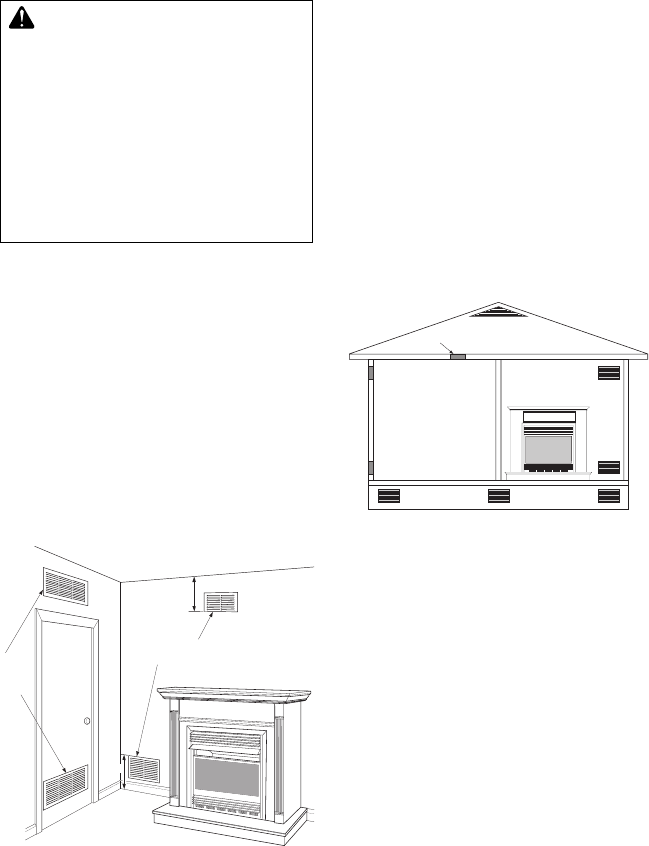
www.fmiproducts.com
124978-01B8
WARNING: If the area in which
-
National Fuel
Gas Code, ANSI Z223.1/NFPA 54,
the International Fuel Gas Code,
This fresh air would come from an adjoining
unconned space. When ventilating to an
adjoining unconned space, you must provide
two permanent openings: one within 12" of the
ceiling and one within 12" of the oor on the
wall connecting the two spaces (see options
1 and 2, Figure 4). You can also remove door
into adjoining room (see option 3, Figure 4).
Follow the National Fuel Gas Code, ANSI
Z223.1/NFPA 54, Air for Combustion and
Ventilation for required size of ventilation
grills or ducts.
AIR FOR COMBUSTION AND VENTILATION
Continued
Provide extra fresh air by using ventilation
grills or ducts. You must provide two perma-
nent openings: one within 12" of the ceiling
and one within 12" of the oor. Connect these
items directly to the outdoors or spaces open
to the outdoors. These spaces include attics
and crawl spaces. Follow the National Fuel
Gas Code, ANSI Z223.1/NFPA 54, Air for
Combustion and Ventilation for required size
of ventilation grills or ducts.
IMPORTANT: Do not provide openings for
inlet or outlet air into attic if attic has a thermo-
stat-controlled power vent. Heated air entering
the attic will activate the power vent.
Figure 5 - Ventilation Air from Outdoors
Shown with Optional Mantel
Outlet
Air
V entilated
Attic
Outlet
Air
Inlet
Air
Inlet Air
V entilated
Crawl Space
T o
Crawl
Space
T o Attic
Figure 4 - Ventilation Air from Inside
Building Shown with Optional Mantel
Or
Remove
Door into
Adjoining
Room,
Option 3
Ventilation Grills
Into Adjoining Room,
Option 2
12"
12"
Ventilation
Grills into
Adjoining
Room,
Option 1


















